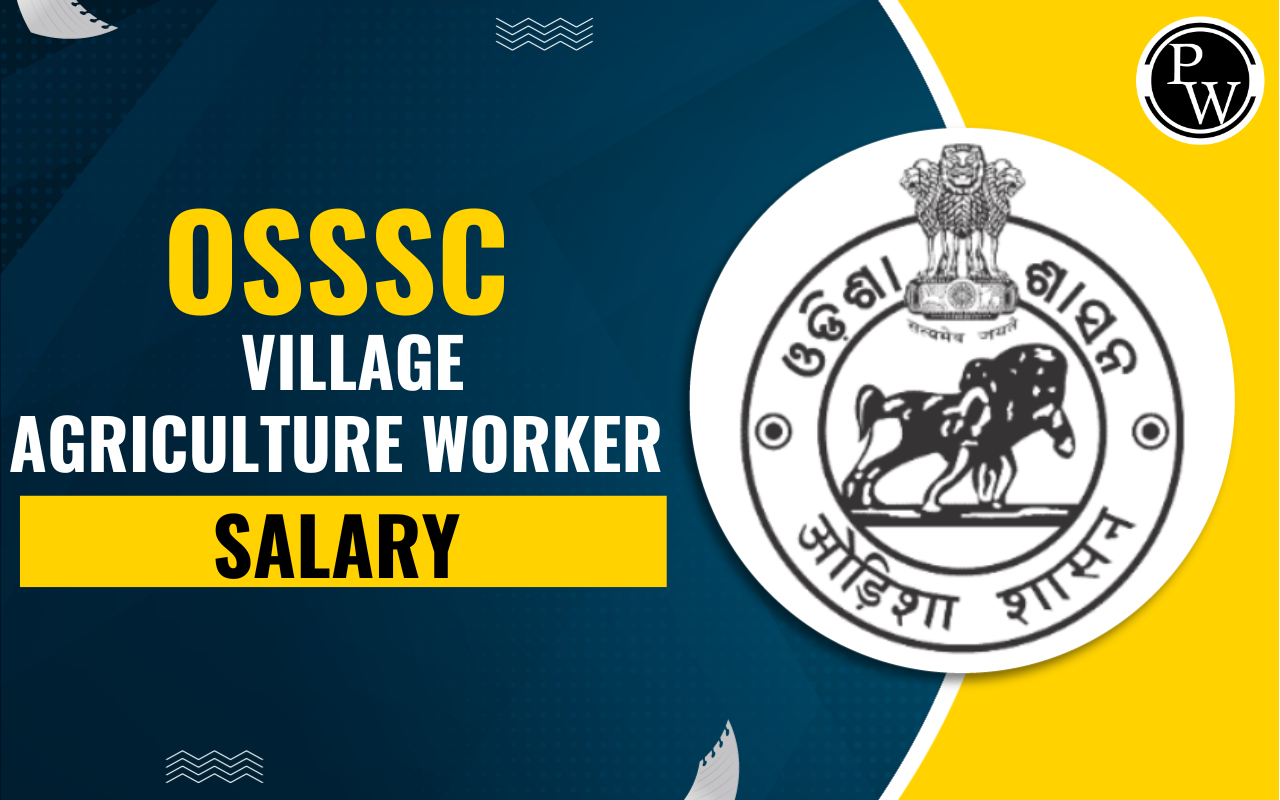
Life After Clearing NABARD Grade A: Passing the NABARD Grade A exam provides access to a fulfilling career in Agricultural banks. It provides opportunities to be employed in rural development, agricultural finance, and farmer support, with attractive salary packages and career growth opportunities in the banking industry.
NABARD Grade A Exam overview
The NABARD Grade A Examination is a country-wide recruitment exam organized by the NABARD to recruit candidates. The examination is organized at three levels: Preliminary, Mains, and Interview.
The Prelims is an online objective test on Reasoning, English Language, and Quantitative Aptitude, Computer knowledge, and Decision making. It has 200 questions and is to be completed within 120 minutes, with 0.25 negative marking for incorrect answers. Candidates who qualify appear in the Mains, which deals with professional knowledge in agriculture and has questions to be completed within 210 minutes. Shortlisted candidates are invited for an interview.
Training and Onboarding After Clearing the NABARD Grade A Exam
Following the successful completion of all stages of the selection process- Prelims, Mains, and the candidates go through a formal onboarding process controlled by the NABARD
1. Provisional Allotment and Offer Letter
After the release of the final merit list, the candidates are allotted to banks provisionally as per their order of preference and merit. The official offer or appointment letter is sent by the respective bank to the chosen candidate's registered email id and correspondence address. The letter contains information regarding joining formalities, documents to be submitted, reporting date, and location.
2. Document Verification and Medical Examination
The candidates need to report to the specified branch or office for verification of documents. They need to produce original certificates, mark sheets, identity proof, and other documents as mentioned in the offer letter. A medical fitness test may also be asked for by some banks before the final appointment confirmation.
3. Induction Training
Upon verification of documents, fresh appointed officers normally follow through on an induction or orientation training course. The course usually lasts around 10–15 days and takes place at the bank training centers, zonal offices, or head offices.
Throughout this phase, candidates are familiarized with the bank's policies, procedures, core banking operations, and their respective roles. Customer service, loan processing, agricultural finance products, and rural outreach activities are also included in the training.
4. Probation Period
After the induction training, candidates are put on probation-typically for a duration decided by the bank (usually one to two years). While on probation, their performance is closely observed, and they are required to acquire hands-on experience in banking and agricultural finance functions.
5. Posting and On-the-Job Training
Having undergone the induction, candidates are then assigned to their respective branches. There, they continue on-the-job training and are guided by senior staff while managing actual-world tasks like disbursal of loans, contacting farmers, and selling bank agricultural products.
Also, Read:
NABARD Grade A Eligibility Criteria
Roles and Responsibilities of an NABARD Grade A
NABARD Grade A Officers, who are referred to as Assistant Managers, have a crucial role to play in taking forward India's rural and agricultural growth. Their tasks are varied and meaningful, covering a range of important domains:
Policy Implementation and Rural Development:
Officers prepare, execute, and oversee government schemes and policies on rural and agricultural development. They assist in organizing agrarian societies into sound cooperatives and banks, and strive to enhance rural living standards.
Loan and Credit Management:
They analyze, process, and approve loan proposals of individuals, cooperatives, and organizations engaged in agriculture and allied enterprises. Officers ensure funds utilization is proper, follow up on repayments, and ensure transparency in credit extension.
Financial Inclusion and Supervision:
Encouraging financial literacy and rural banking access is an important task. Officers manage rural financial institutions, regional rural banks, and cooperative banks, and also conduct inspections and audits for smooth financial flow.
Project Management:
NABARD Grade A Officers monitor the execution and progress of rural development projects. This involves examining proposals, carrying out feasibility studies, monitoring results, and also verifying that project goals are met.
Capacity Building:
Officers conduct training sessions, workshops, and awareness drives to develop the capacities of farmers, rural entrepreneurs, and other stakeholders, thus building the rural economy.
Research and Policy Analysis:
Researching rural economic patterns and issues, officers analyze facts and figures to recommend changes in agricultural policies and financial plans. They work with research centers to promote innovation in the sector.
Coordination with Stakeholders:
Officers collaborate with government agencies, NGOs, financial institutions, and international agencies to facilitate the effective implementation of developmental schemes and forge synergy among rural development initiatives.
Administrative Responsibilities:
Assistant Managers attend to different administrative activities, prepare proposals, and finalize assignments given by senior management, especially the Chief General Manager at regional offices.
Perks and Benefits After Clearing the NABARD Grade A Exam
NABARD Grade A officers have a satisfying career with a good salary, several allowances, and full benefits. The job provides financial security, job security, and scope for professional development, making it a desirable option for agriculture graduates looking for a secure government job in the banking industry.
|
Perks and Benefits After Clearing the NABARD Grade A Exam |
|
|
Starting Basic Pay |
₹44,500 per month |
|
Pay Scale |
₹44,500 – 2,500 (4 years) – ₹54,500 – 2,850 (7 years) – ₹74,450 – 2,850 (4 years) – ₹85,850 – 3,300 (1 year) – ₹89,150 (max) |
|
Gross Monthly Salary |
Approximately ₹1,00,000 (including allowances) |
|
In-Hand Salary (Approx.) |
₹62,600 to ₹85,000+ depending on location and allowances |
|
Annual Increment |
₹2,500 per year for the first 4 years, ₹2,850 for the next 7 years, ₹3,300 for 1 year thereafter |
|
Grade Pay |
₹4,800 per month |
|
Key Allowances |
Dearness Allowance (DA), House Rent Allowance (HRA), Transport Allowance, Medical Allowance, Leave Fare Concession, Bank Loan Facility, Family Allowance, Local Compensatory Allowance |
|
Annual Package (CTC) |
₹5,34,000 to ₹18,00,000 |
|
Deductions |
Provident Fund, Medical Premium, Income Tax, Relief Fund Contribution, Lounge Subscription |
|
Starting Basic Pay |
₹44,500 per month |
|
Pay Scale |
₹44,500 – 2,500 (4 years) – ₹54,500 – 2,850 (7 years) – ₹74,450 – 2,850 (4 years) – ₹85,850 – 3,300 (1 year) – ₹89,150 (max) |
|
Gross Monthly Salary |
Approximately ₹1,00,000 (including allowances) |
A Day of Life After Clearing NABARD Grade A
A NABARD Grade A officer has a mixed and dynamic working day, partly involving office tasks and on-site visits. Here is the table depicting a day of a NABARD Assistant Manager.
|
A Day of Life After Clearing the NABARD Grade A Exam |
|
|
Time |
Activity |
|
9:00 AM – 9:30 AM |
Arrive at the office, check emails, and plan the day’s tasks |
|
9:30 AM – 12:30 PM |
Attend meetings, review project proposals, and monitor rural development schemes |
|
12:30 PM – 1:30 PM |
Lunch break |
|
1:30 PM – 3:30 PM |
Fieldwork coordination, loan appraisal, and credit supervision activities |
|
3:30 PM – 5:30 PM |
Documentation, report preparation, and correspondence with stakeholders |
|
After 5:30 PM |
Generally free, maintaining a healthy work-life balance; occasional official work or training. |
Aspirants must join Physics Wallah's Join Agriculture Online Courses to boost their readiness for the Agriculture Competitive Examinations. Our courses offer daily live classes, study notes, recorded classes, test series, and more.
Life After Clearing NABARD Grade A, Perks and Benefits FAQs
What is the job of a NABARD Grade A officer?
What is the NABARD Grade A selection process?
What are the most important subjects in the NABARD Grade A exam?
Is there an interview round?












